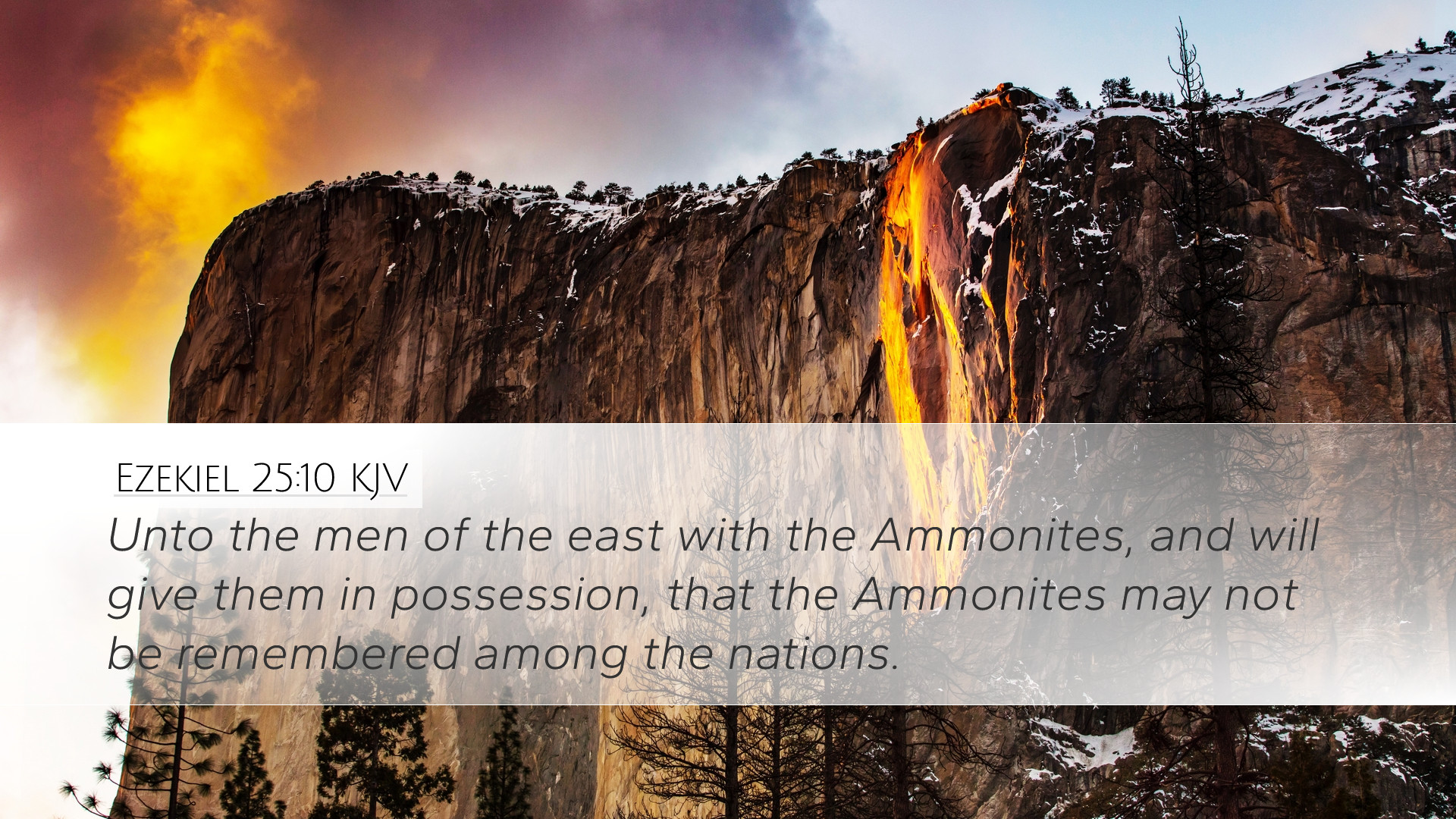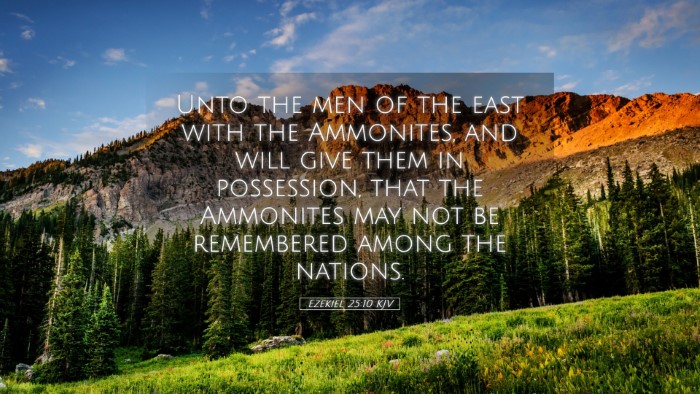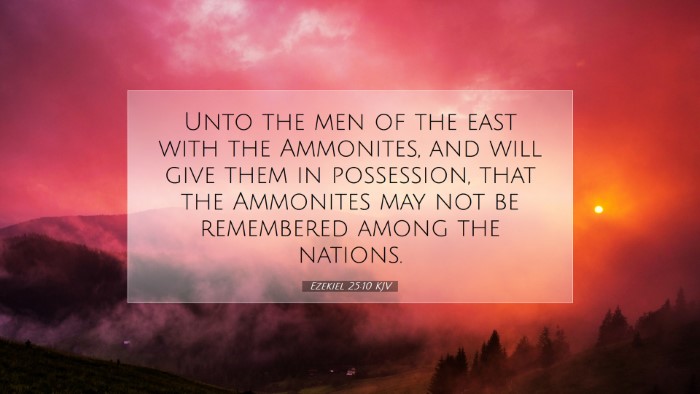Ezekiel 25:10 - Commentary and Insights
Verse: "And I will lay my vengance upon Edom by the hand of my people Israel: and they shall do in Edom according to mine anger and according to my fury; and they shall know my vengeance, saith the Lord God." (Ezekiel 25:10 KJV)
Introduction
The prophetic book of Ezekiel, located in the Old Testament, contains messages that were revealed to the prophet Ezekiel during the Babylonian exile. Ezekiel 25 is characterized by oracles against foreign nations, including Edom, which is situated southeast of Israel. This particular verse reveals God's intention to execute judgment upon Edom, using Israel as His instrument of vengeance.
Contextual Background
In order to fully appreciate the gravity of Ezekiel 25:10, one must understand the historical and theological context surrounding the Edomites and their relationship with Israel. The Edomites were descendants of Esau, Jacob's brother, and historically had a contentious relationship with the Israelites. Throughout the narratives of the Old Testament, Edom plays the role of an antagonist towards Israel, and their joy in Israel's calamities only aggravates the situation, culminating in this divine declaration of judgment.
Theological Implications
- Divine Judgment: This verse exemplifies God's sovereignty and justice. The Bible does not shy away from portraying the God of Israel as one who judges nations for their actions against His chosen people.
- Utilization of Instrumental Agency: While God executes judgment, He often employs human agents, in this case, Israel. This indicates that God may use His people to fulfill His divine purposes, whether for blessing or judgment.
- Understanding Vengeance: The concept of vengeance is often misunderstood. Here, it is presented as a divine prerogative — not merely a human emotion but an act of God’s righteousness against evil.
Commentary Insights
Matthew Henry: Matthew Henry emphasizes the certainty of divine retribution. He indicates that God's judgment on Edom serves as a warning to all nations that delight in Israel's distress. His commentary reflects an understanding that God does not overlook the iniquity of nations, and maps the unfolding of God's sovereign will through historical events.
Albert Barnes: Barnes provides an interpretation noting the specificity of the judgment against Edom. He points out that Edom was a symbol of persistent hostility towards Israel, and the prophecy highlights the reality that sin leads to inevitable judgment. Barnes underscores the inevitability of God's plans, especially when sin has reached its fullness, thus Edom will face the wrath of God through Israel's hands.
Adam Clarke: Adam Clarke's commentary presents an in-depth exploration of the nature of Edom's crimes against Israel. He underscores the significance of knowing God's vengeance, which should lead to a recognition of God's power and authority among all nations. Clarke emphasizes the role of divine justice and the moral order of the universe, reinforcing that Edom's own actions have resulted in its fate.
Practical Applications
- Reflection Upon Justice: This passage invites believers to reflect on God's justice in the face of injustice. It encourages unwavering trust in God’s sovereignty and timing, especially in contexts of oppression and suffering.
- Understanding God’s Actions: It challenges pastors and theologians to delve deeply into the reasons behind God's actions and warnings in Scripture, facilitating a deeper understanding of divine grace and justice.
- Intercession and Responsibility: The passage serves as a reminder of the responsibility of God's people to act righteously and to intercede on behalf of those who may oppose them, understanding that vengeance belongs to God.
Conclusion
Ezekiel 25:10 serves as a profound reminder of God's justice and His use of nations as instruments for enacting His divine will. As believers engage with this text, they are confronted with the reality of God’s sovereignty over nations and the seriousness of dealing with sin. It calls for a sober reflection on the part of the church, emphasizing that God’s judgments are serious but also revealing His unyielding commitment to justice. In this process, the Edomites stand as a cautionary tale against enmity and a reaffirmation of God's covenant faithfulness towards Israel.


